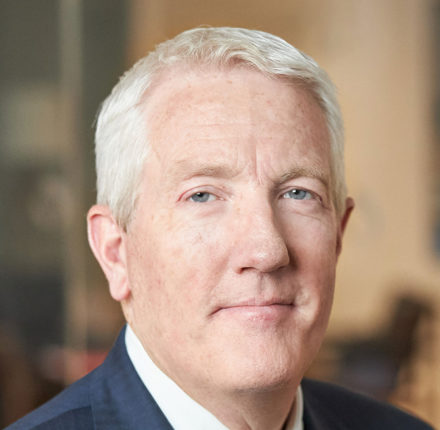Technology & Gig Economy
NEW YORK—Waymo Applies for NYC Permit
Waymo, Alphabet’s self-driving car unit, plans to begin manually operating vehicles in Manhattan as a first step toward launching autonomous ride-hailing in New York City. The company has applied for a permit to test with a human specialist behind the wheel, as state law currently prohibits fully driverless operations.
Housing & Real Estate
BALTIMORE—City Considers Ending Minimum Parking Requirements for New Developments
A proposed bill before the Baltimore City Council would eliminate mandatory off-street parking minimums for new developments to reduce construction costs, encourage walkable neighborhoods, and support housing affordability. The bill’s critics cite concerns over the city’s limited transit infrastructure.
CHICAGO—City Ups Financial Incentives for Rehabbing Derelict Homes
Chicago is ramping up support for small developers through its Rebuild 2.0 initiative, targeting derelict homes in Roseland and Englewood. The City will now cover the cost of acquiring properties from the Cook County Land Bank and make up the gap between rehab costs and market prices—helping developers avoid losses and easing the path to homeownership.
LOS ANGELES—City May Remove Parking Requirement for New Housing
The Los Angeles City Council is considering eliminating parking requirements for new housing developments citywide. While state law already waives such rules near transit, expanding the policy could lower construction costs and encourage more affordable housing.
PHILADELPHIA—City Approves Anti-Displacement Fund for Tenants, Funding Remains Uncertain
The Philadelphia City Council passed legislation to create an anti-displacement fund for tenants forced to move due to unsafe housing, though the initiative currently lacks dedicated funding and may rely on resources from the City’s broader $2 billion housing package.
SAN DIEGO—Council Votes to Change ADU policy
The San Diego City Council approved changes to its accessory dwelling unit (ADU) policy, capping developments at six units per lot and limiting their height to two stories. The move comes after complaints that developers were using the program to build large, apartment-style complexes next to single-family homes.
TWIN CITIES—Residential Property Taxes Increase as Commercial Property Values Decline
A shift in the Twin Cities tax base is driving up residential property taxes, as declining commercial property values since the pandemic have transferred more of the tax burden onto homeowners. A Star Tribune analysis of Minneapolis and Ramsey County data shows this trend has accelerated since the 2010s, following years of downtown growth.
WASHINGTON, D.C.—Council Likely to Approve Commanders Stadium Deal
D.C. Council members say they need more time to review Mayor Muriel Bowser’s (D) $3.7 billion stadium deal with the Washington Commanders—despite her July deadline—citing missing financial details and concerns over taxpayer impact. Most members expect the deal will ultimately be approved.
Labor & Employment
BOSTON—Fenway Workers Vote to Authorize Strike
More than 700 Aramark workers at Boston’s Fenway Park and MGM Music Hall voted to authorize a strike—the first in the ballpark’s history. Represented by Unite Here Local 26, the workers are pushing for better wages, scheduling, and technology terms.
CHICAGO—Uber Strikes Deal With Unions to Avert Rideshare Pay Ordinance
Uber and labor unions reached a last-minute agreement, halting a push for a Chicago ordinance that would have raised rideshare driver pay. In exchange, Uber will not oppose union organizing efforts and will support statewide legislation granting collective bargaining rights while preserving drivers’ independent contractor status.
LOS ANGELES—Union Launches Dueling Ballot Measures, Escalating Fight Over Tourism Worker Wage Hike
Unite Here Local 11 filed two ballot proposals in response to industry efforts to repeal Los Angeles’ $30 minimum wage ordinance for hotel and airport workers. One would raise the citywide minimum wage to $30 by 2028, while the other would require public votes on major hotel and event center projects.
SAN DIEGO—Unemployment Drops as Tourism Hiring Surges
San Diego’s unemployment rate dipped to 4% in May, fueled by a surge in tourism-related hiring. The leisure and hospitality sector added 3,400 jobs last month, putting the region on track to surpass its pre-pandemic employment peak in the industry by August.
Policy & Politics
DETROIT—Mayoral Hopefuls Spar Over Housing, Safety, Jobs, Taxes
Detroit’s four mayoral contenders faced off in a televised debate, trading views on key issues, including housing affordability, public safety, job creation, and taxation, ahead of the upcoming election.
NEW YORK—Mamdani Beats Cuomo in Democratic Primary
Yesterday, 33-year-old Democratic Socialist Zohran Mamdani defeated Former Governor Andrew Cuomo in the Democratic primary race for NYC Mayor.
RICHMOND—Council Delays Vote on Residency Rule
The Richmond City Council postponed a vote on expanding its residency requirement for top City officials as members negotiate a compromise with Mayor Danny Avula (D), who argues the rule could hinder recruitment of qualified candidates.
Public Health & Safety
CHICAGO—Mayor Johnson Vetoes Controversial “Snap Curfew” Policy
Chicago Mayor Brandon Johnson (D) vetoed a proposed “snap curfew” policy, marking Chicago’s first mayoral veto since 2006. The ordinance, narrowly approved by the City Council, would have allowed police to impose curfews on youth at any time and location.
LOS ANGELES—Mayor Bass Lifts Downtown Curfew Imposed During Immigration Raid Protests
Mayor Karen Bass (D) lifted the downtown curfew put in place during ICE protests. The curfew was initially imposed to prevent nighttime vandalism and property damage during demonstrations against President Trump’s immigration policies.
RICHMOND—Mayor Avula Launches Regional Water Strategy Group
Following multiple water crises, Richmond Mayor Avula formed a regional group with neighboring counties to assess infrastructure, identify systemic issues, and develop solutions for a more resilient water system, with recommendations expected by spring 2026.
SAN DIEGO—Debate Over Surveillance Tech Reignites
Controversy over San Diego’s streetlight surveillance tech has reignited amid immigration raids and growing budget concerns. While police say they have stopped sharing data with federal agencies, critics are questioning the $2 million annual cost and demanding more oversight. The City Council has now tied future funding to a full review and reauthorization of the program.
WASHINGTON, D.C.—City Advances Youth Curfew, Public Safety Reforms
Mayor Bowser proposed stricter youth curfews and emergency curfew powers in response to teen violence. Meanwhile, the D.C. Council advanced a public safety bill, which expands pretrial detention and eases police recruitment standards, drawing both support and criticism over its potential impact on justice and safety.
Taxes & Spending
BALTIMORE—Council Passes $4.6B Budget with Fee Increases, Funding Shifts
The Baltimore City Council approved Mayor Brandon Scott’s (D) $4.6 billion FY26 budget, retaining most of the proposed fee hikes, partially funding the State’s Attorney’s body camera unit, reallocating funds to the Inspector General, and committing $2 million to support immigrants.
CHICAGO—Grocery Tax Fight Begins at City Hall
Mayor Johnson’s proposed 1% grocery tax faced immediate pushback at City Hall, with Alderman Brendan Reilly (D-Ward 42) accusing the administration of trying to bypass Council scrutiny. Ald. Reilly attempted to stall the measure using a procedural move but was blocked before he could act, marking a contentious start to the debate.
DETROIT—Has the City Fixed Its Property Tax Assessment Issue?
Detroit officials say that they have resolved issues with inaccurate property tax assessments, but advocates argue the system still unfairly burdens lower-valued homes while underassessing higher-valued ones. Despite the City’s assertion that no systemic overassessment remains, critics point to ongoing disparities that have led to widespread foreclosures.
LOS ANGELES—Legal Payouts Skyrocket as City Faces Budget Crisis
Los Angeles paid a record $289 million in legal settlements and verdicts in 2024, up from $91 million just two years earlier. City officials say the rising cost of lawsuits, including police misconduct and injury claims, is a major driver of the nearly $1 billion budget gap that forced layoffs and cuts in the upcoming fiscal year.
SAN DIEGO—Mayor Gloria Vetoes Millions from Council-Approved Budget
San Diego Mayor Todd Gloria (D) used a rare line-item veto to strike millions of dollars in spending and cuts added by the City Council, including $1.4 million in proposed layoffs and nearly $5 million in new expenditures. The Council has until June 26 to override the vetoes, which would require support from six of its nine members.
Transportation & Mobility
CHICAGO—Area Public Transit Agencies Begin Planning for “Doomsday” Funding Scenario
Facing a $771 million annual funding shortfall, Chicago-area transit agencies have begun planning for drastic service cuts and layoffs after state lawmakers failed to address the looming deficit. The Regional Transportation Authority is preparing two budget scenarios—one with new funding and one reflecting the full impact of the gap.
DETROIT—City Unveils “DDOT Now” Same-Day Paratransit Service
Detroit is introducing “DDOT Now,” a same-day paratransit option to improve mobility for residents with disabilities. Riders can now book trips up to one hour before departure, offering greater flexibility and access.







